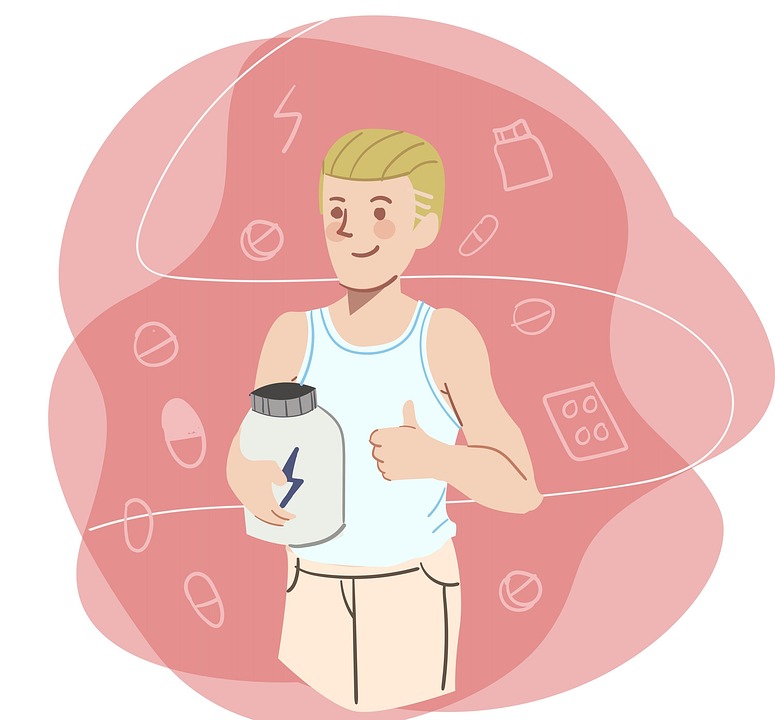Gaining weight can be just as challenging as losing it, especially when you are trying to build muscle or recover from illness. If you’re searching for effective strategies to add healthy pounds, you’re in the right place. In this article, we’ll explore the top 10 foods to help you gain weight and support your overall health.
Understanding Healthy Weight Gain
Before diving into specific foods, it’s essential to clarify what healthy weight gain entails. Many people believe that simply eating junk food will lead to weight gain, but this approach can result in unhealthy fat accumulation rather than muscle growth. A balanced diet rich in calories and nutrients is crucial for effective weight gain. Incorporating protein-rich foods, healthy fats, and carbohydrates enhances this process and supports overall well-being.
Why Focus on Nutrient-Dense Caloric Sources?
- Muscle Building: Foods high in protein are crucial for repairing and building muscle tissue.
- Energy Levels: Nutrient-dense foods keep energy levels high, which is essential for workouts and daily activities.
- Reduced Health Risks: Eating a balanced diet minimizes the risks associated with unhealthy weight gain, such as diabetes or heart disease.
1. Nuts and Nut Butters
Nuts, such as almonds, walnuts, and cashews, are powerhouses of healthy fats and proteins. A small handful can deliver a significant caloric boost.
Nutritional Benefits:
- High in Calories: Roughly 200 calories in just 1 oz.
- Rich in Healthy Fats: Support heart health and provide essential fatty acids.
Nut butters are also a fantastic option. Spread almond or peanut butter on whole-grain bread or oatmeal for an easy weight-gain snack.
2. Whole Grains
Whole grains, like oats, brown rice, and quinoa, are excellent carbohydrate sources that provide sustained energy.
Advantages:
- High in Calories and Fiber: Support digestive health while adding calories.
- Versatile: Can be mixed with protein sources or healthy fats.
Consider making oatmeal with milk and topped with bananas and honey for a calorie-dense breakfast.
3. Avocados
Avocados are unique fruits packed with healthy monounsaturated fats and calories.
Key Points:
- Caloric Density: One avocado contains about 240 calories.
- Nutrient-Rich: Provides vitamins E, C, and B6, along with potassium.
Add mashed avocado to sandwiches or salads, or enjoy it in smoothies for extra creaminess and calories.
4. Dairy Products
High-fat dairy products can significantly increase calorie intake while supplying protein and calcium.
Options:
- Whole Milk: One cup has about 150 calories and is excellent for protein content.
- Cheese: A calorie-dense option that can be added to various meals.
Using full-fat yogurt in smoothies or as a topping can also add richness and flavor.
5. Starchy Vegetables
Starchy vegetables like potatoes, sweet potatoes, and corn are excellent carbohydrate sources.
Benefits:
- High in Calories: Potatoes can have around 130 calories per medium-sized potato.
- Nutritional Value: Provides vitamins and minerals.
Roasting potatoes and sweet potatoes with olive oil can make them even more calorie-rich.
6. Protein Supplements
Protein powders can be an effective way to increase protein intake without excessive eating.
Types:
- Whey Protein: Quickly digested and pairs well with milk.
- Plant-Based Protein: Great for those with dietary restrictions.
Adding a scoop of protein powder to smoothies or oatmeal can help you meet your calorie and protein goals easily.
7. Dark Chocolate
Surprisingly, dark chocolate is a delicious way to add calories and antioxidants to your diet.
Nutritional Perks:
- High in Calories: About 170 calories in a 1 oz square.
- Rich in Antioxidants: May improve heart health.
Opt for chocolate with a cocoa content of at least 70% to maximize health benefits.
8. Dried Fruits
Dried fruits like dates, raisins, and apricots are nutritious and calorically dense.
Why They’re Great:
- Concentrated Nutrients: Dried fruits have higher calorie content than their fresh counterparts.
- Versatile Snacks: Make great toppings for oatmeal or yogurt.
Mix dried fruits with nuts to create an energy-dense trail mix.
9. Legumes
Legumes, including beans, lentils, and chickpeas, are excellent sources of plant-based protein and carbohydrates.
Health Advantages:
- Rich in Fiber: Supports digestive health while providing calories.
- Nutritional Value: Contain essential vitamins and minerals.
Incorporate them into salads, soups, or stews to bulk up meals.
10. Healthy Oils
Adding healthy oils to meals is a simple way to increase caloric intake without feeling overly full.
Examples:
- Olive Oil: Rich in monounsaturated fats and anti-inflammatory properties.
- Coconut Oil: Medium-chain triglycerides can enhance energy levels.
Drizzle oil on salads, mix it into cooking, or add it to smoothies for extra calories.
Conclusion
By focusing on these top 10 foods to help you gain weight, you can achieve your goals while prioritizing your health. Remember to incorporate a variety of foods to balance your nutrient intake. Whether you’re trying to build muscle or simply increase your caloric intake, choosing the right foods can make a significant difference.
If you’re looking for more tips on healthy eating, check out our guide on nutrition strategies for weight gain.
Frequently Asked Questions
What are the best foods to help you gain weight quickly?
Foods such as nut butters, whole grains, and healthy oils are excellent for quick weight gain because they’re calorie-dense and nutritious.
Can I gain weight quickly without unhealthy foods?
Yes, focusing on nutrient-dense foods like avocados, legumes, and dairy products allows for healthy weight gain without consuming junk food.
How often should I eat to gain weight effectively?
Eating multiple small meals throughout the day can help increase your overall caloric intake without causing discomfort.
Is it better to gain weight slowly or quickly?
A gradual approach to weight gain is typically healthier as it allows muscle growth and minimizes unwanted fat gain.
Do protein supplements help in gaining weight?
Yes, protein supplements can be beneficial for those looking to increase muscle mass and overall caloric intake.
What role do carbohydrates play in weight gain?
Carbohydrates provide a significant energy source that supports both strength and endurance, which is crucial for effective workouts and healthy weight gain.








